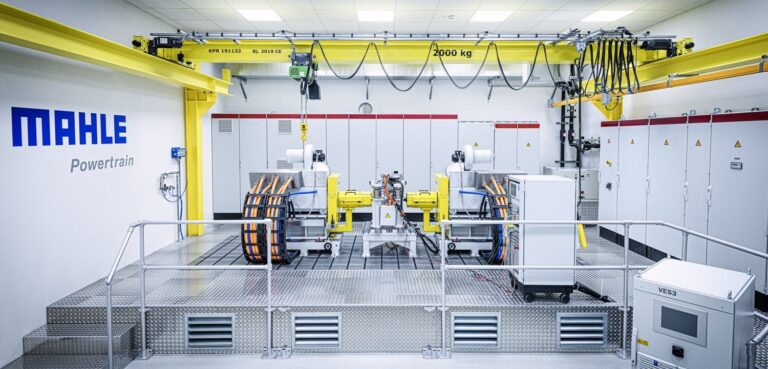Stuttgart-based Tier 1 Mahle has announced that it is expanding its global R&D efforts, to encompass what it views as the key areas of future powertrain development. This, it says, will involve an increased focus on battery systems and hydrogen applications.
“Viewed from an international perspective, there will not be one single powertrain of the future. That’s why Mahle is continuing to follow its dual strategy: electrification, development of the fuel cell, and the use of hydrogen and alternative fuels in an intelligently electrified combustion engine,” said Dr Jörg Stratmann, chairman of the Mahle management board and CEO. “At the moment, the change in powertrain technologies is driven primarily by political objectives. The current one-dimensional debate focused on a single drive is not productive. We want a dialog that has a basis in technology.”
As part of the expansion of its global R&D infrastructure, the group notes it has recently set up a new competence center for mechatronics in Kornwestheim, near Stuttgart. Meanwhile, in Fellbach, also near Stuttgart, a new test bench for electric drives has been commissioned. Furthermore, the company has an e-mobility development center in Suzhou, China, scheduled for completion in December, where it hopes to pool its expertise in mechatronics, thermal management and fluid management in order to develop solutions specifically for the Chinese market.
At a recent press conference covering the expansion of its capabilities, the company’s head of corporate research and advanced engineering, Dr Martin Berger, presented a project involving a type IV hydrogen tank. The design consists of a liner made of plastic and an outer casing made of carbon fiber. Berger noted that the company is working on the development of a new production process for this tank that will increase its hydrogen storage density while reducing production costs.
Berger also highlighted work that is underway in the area of battery cooling, specifically the use of immersion cooling. “Immersion cooling paves the way for a whole new generation of battery systems. With this technology, electric vehicles will be cheaper, lighter and more resource-efficient,” he said.


